2021
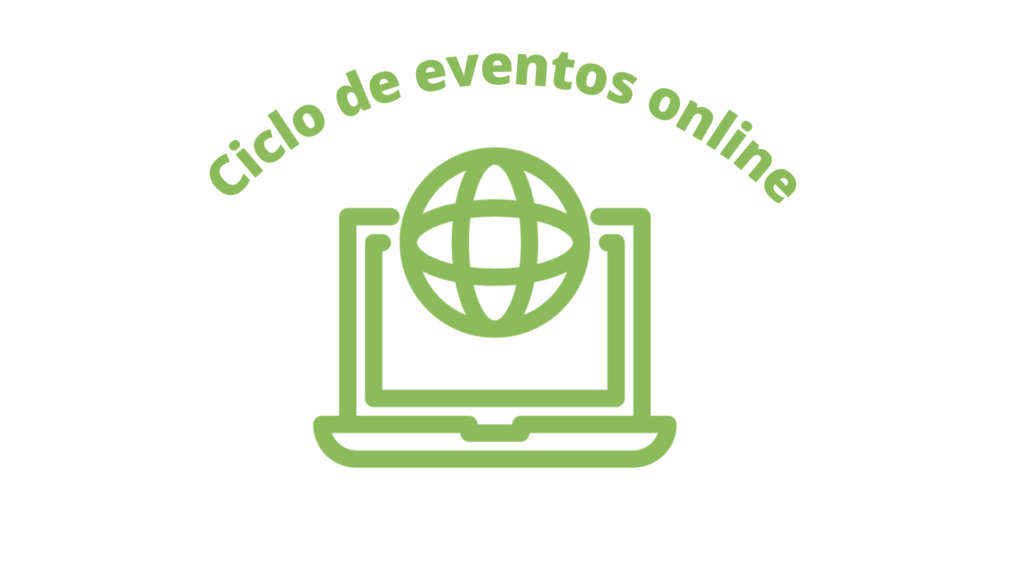
In the year 2021, due to the restricted health conditions caused by Covid-19, the project’s performance was adapted to the remote modality. The events are international and take place every two weeks. Check below the events offered throughout the year.
Workshop
How Reggio Emilia has reshaped my views on language
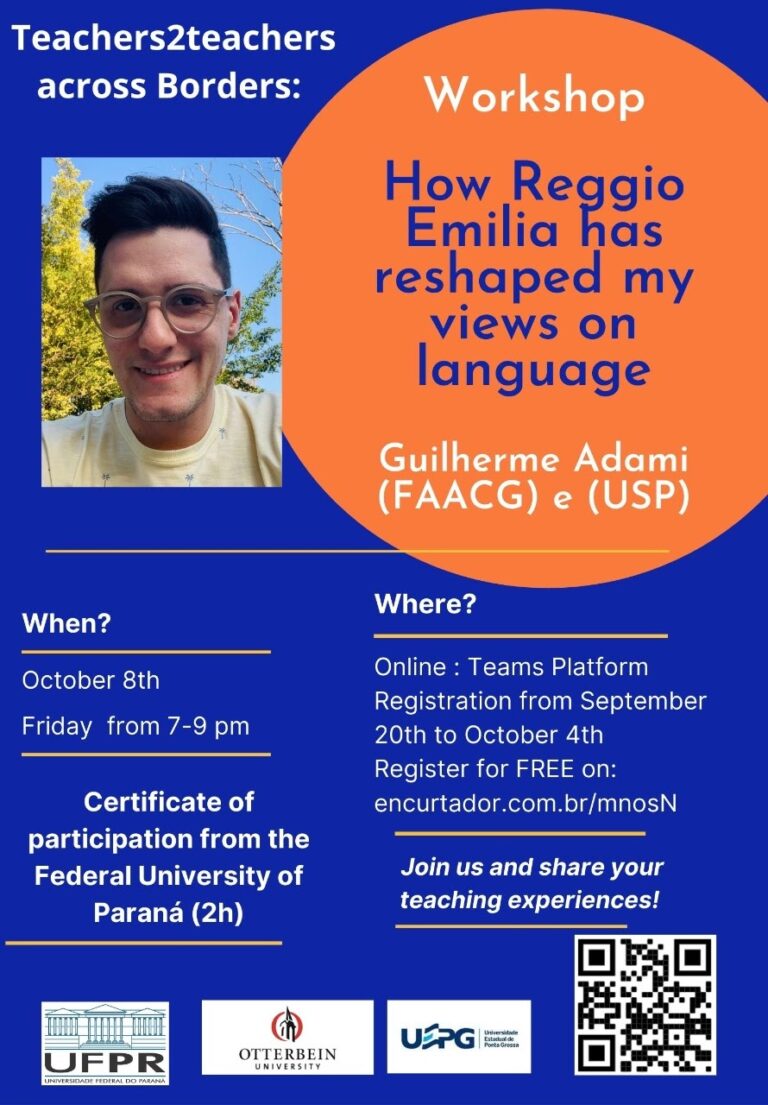
In this workshop, presented by professor and master Guilherme Adami (FAACG/USP), you will have the opportunity to get in touch and exchange insights about the process of professional change, experienced by the speaker, in relation to his approach to language teaching. This change resulted from contact with the philosophical, political and pedagogical ideas of Reggio Emilia.
Workshop
A decolonial/ critical option in the ELT: struggles, uncertainties, and possibilities with and for students at a public school
The event A decolonial/ critical option in the ELT: struggles, uncertainties, and possibilities with and for students at a public school was given on August 6, 2021 by Prof. Me. Miguel Martinez, from the Universidad Distrital FJDC, in Bogotá, Colombia. Its goal was to reflect on the experiences of public schools in Colombia from a decolonial and critical perspective. Thus, the speaker analyzed different methods for teaching English in these difficult times, such as cases related to social transformation, inequality, diversity, and power relations. During the workshop, Martinez deepened theoretical points that contributed to the debate, such as those discussed by Escobar, Mignolo, Quijano, Maldonado Torres, Castro Gomez, Walsh, Grossfoguel, among others.
Furthermore, this workshop sought to recognize the practices of local teachers, the indigenous population, elementary and high school teachers, and other people who act daily as builders of knowledge in social contexts. In some moments of the lecture, the voices of people belonging to the academic community were heard, as well as the exposure of their difficulties, uncertainties and possibilities of acting with and for students from public schools. During the workshop, there were group dynamics for discussing different methods, strategies and materials and/or techniques for teaching English, as well as the analysis of case studies proposed by the speaker. At the end of the session, the audience was able to understand the complex dynamics of an English class in a public school today. Then, it was possible to reflect on possible variants that exist in local contexts (pedagogical, curricular and evaluative). Finally, the conclusions showed a meaningful/authorial process of teaching English with and for our public schools in South America.
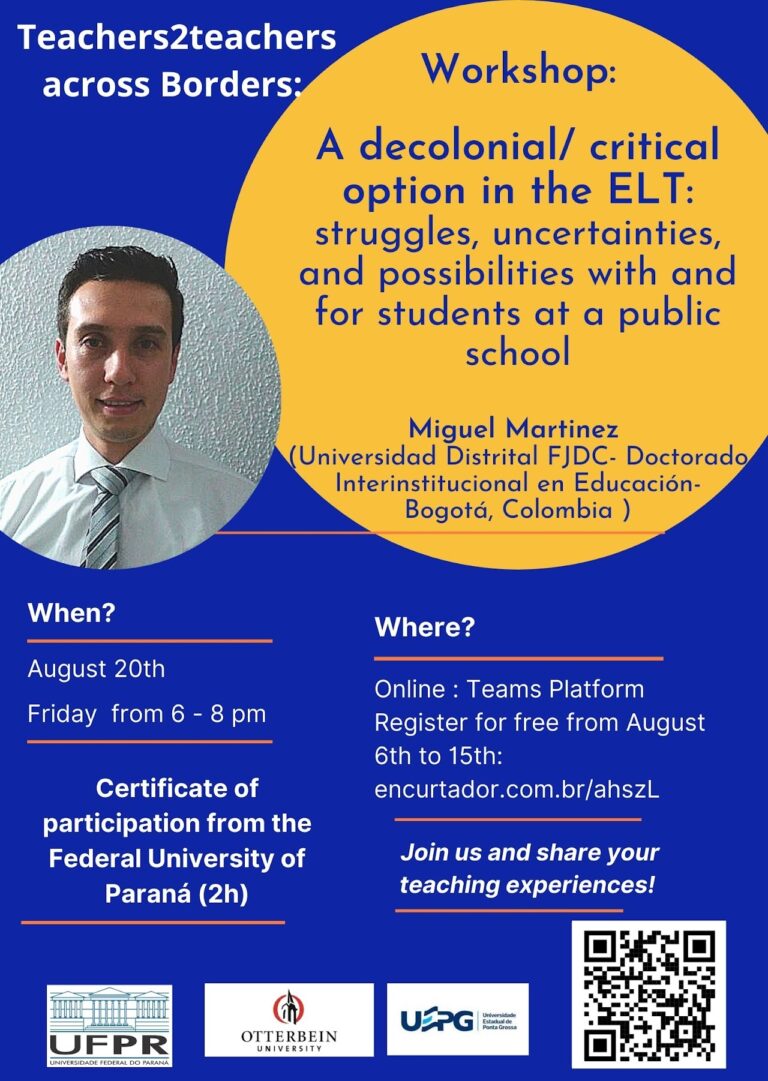
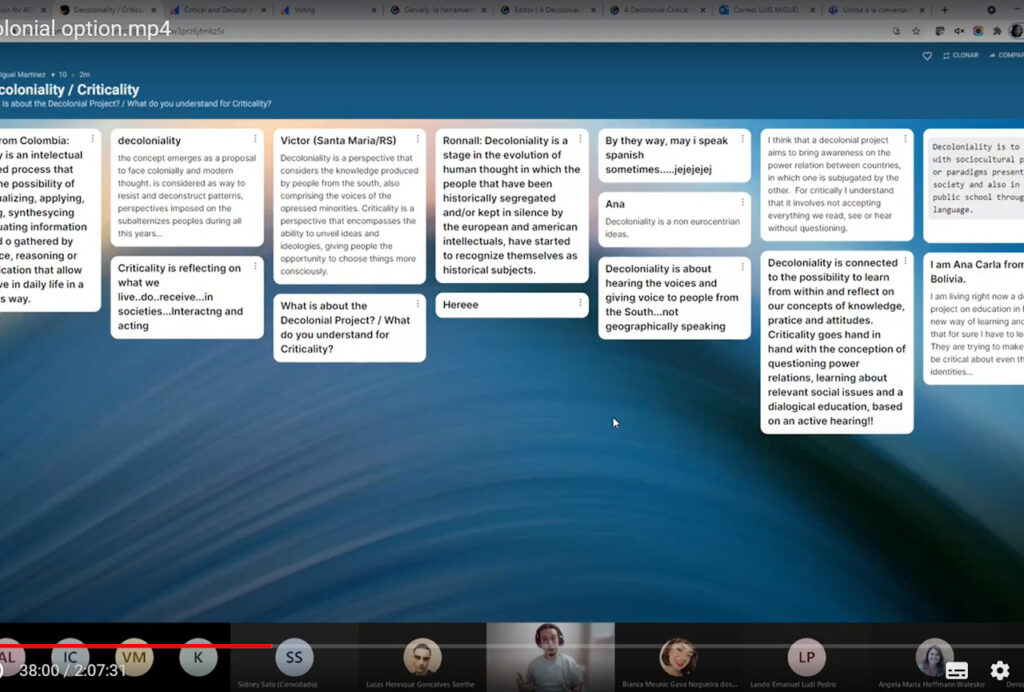
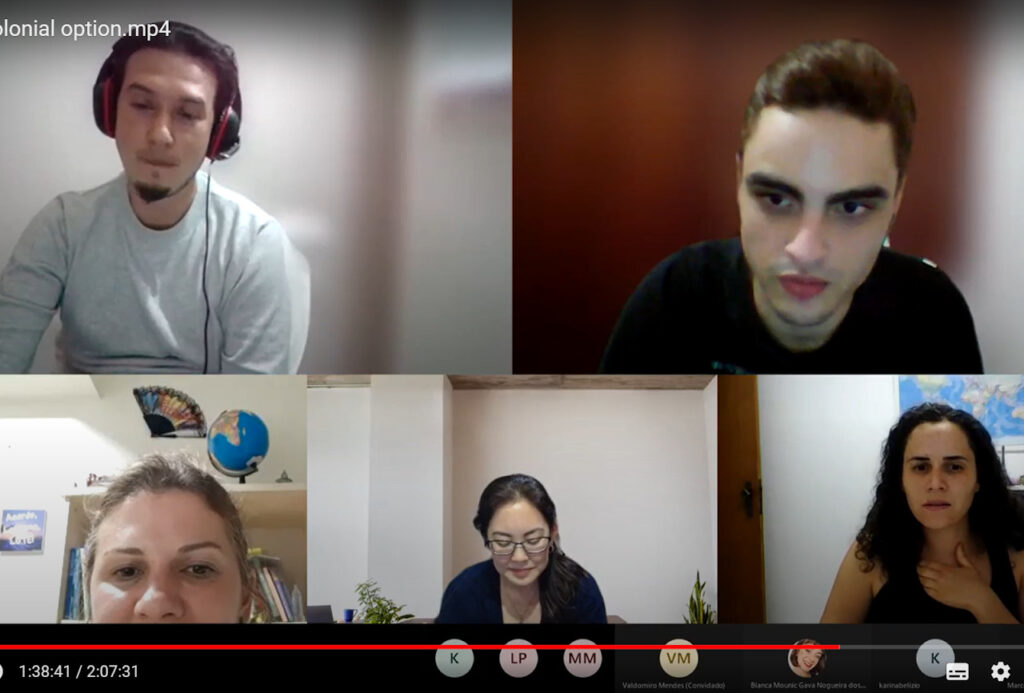
Workshop
English as a Lingua Franca: challenges for teaching practice
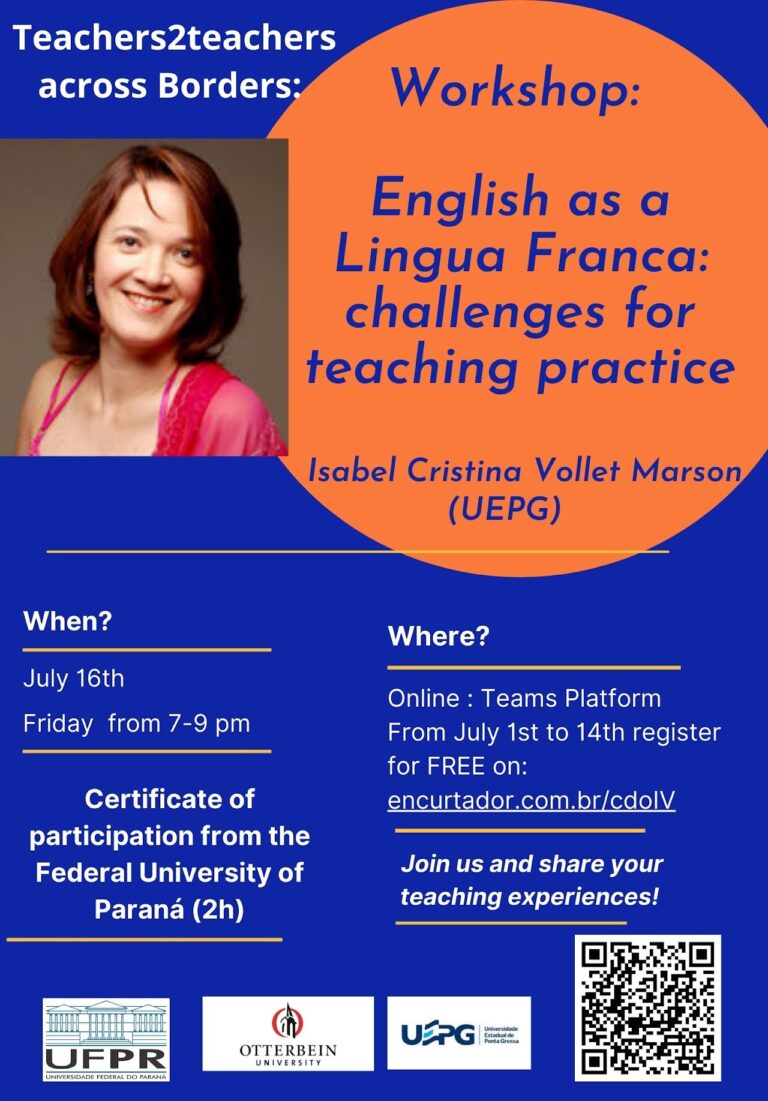
The event English as a Lingua Franca: challenges for teaching practice, taught by Prof. Dr. Isabel Marson, from UEPG, was held in two editions (July 19 and August 6) due to the large number of interested people. It was two moments of online teacher training, made possible by new information and communication technologies that promoted intercultural interlocution and socialization among Brazilian English language undergraduates and teachers, American teachers and teachers from other Latin American countries working in Public Elementary Education, to discuss the expansion of the English language in a global context and the implications of its use in interaction contexts.
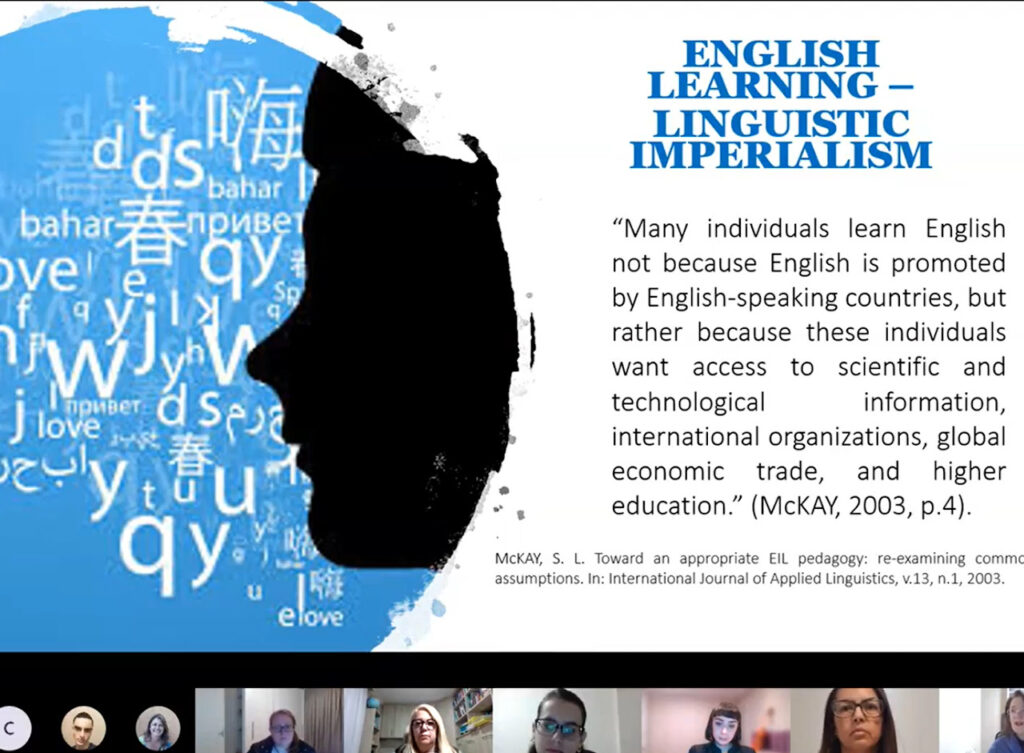
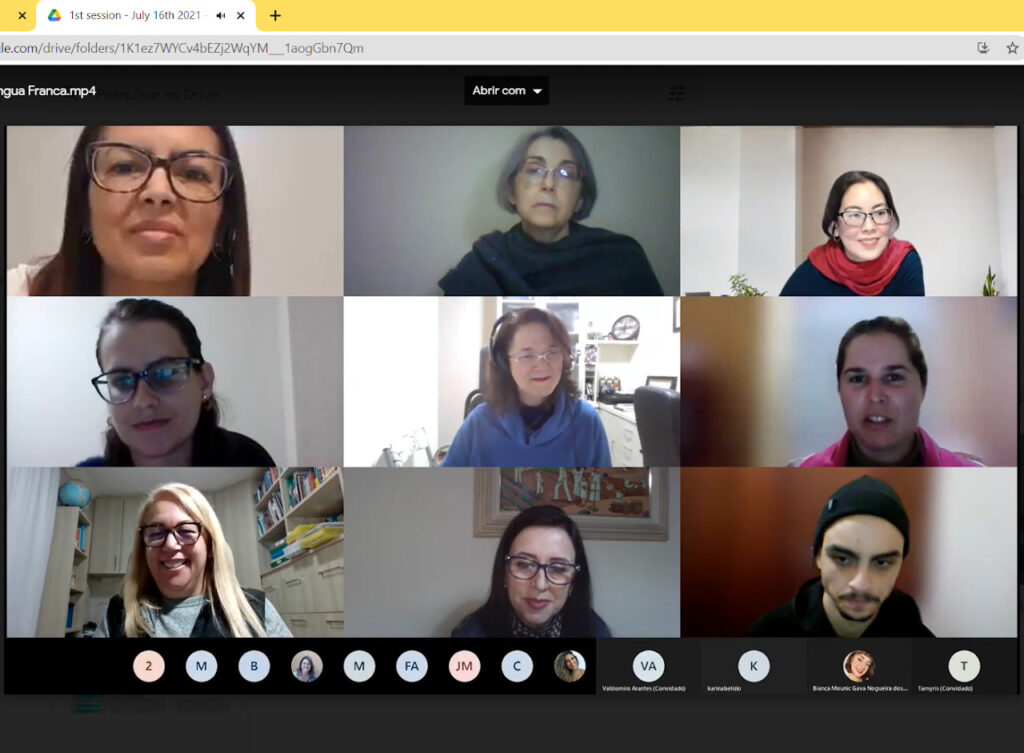
Workshop
A Tale of Three: Experiences of Critical Literacy in English classes
In the event entitled A tale of three: experiences of critical literacy in English classes, the primary education teachers Eliana Edmundo , Elza Disssenha, Kátia B. Mulik shared, in an interactive workshop taught in Portuguese, a critical literacy project they developed during the 2019 extension course. During the workshop participants were provoked to think and discuss about the concepts of education, teaching-learning and criticality in Brazilian school.
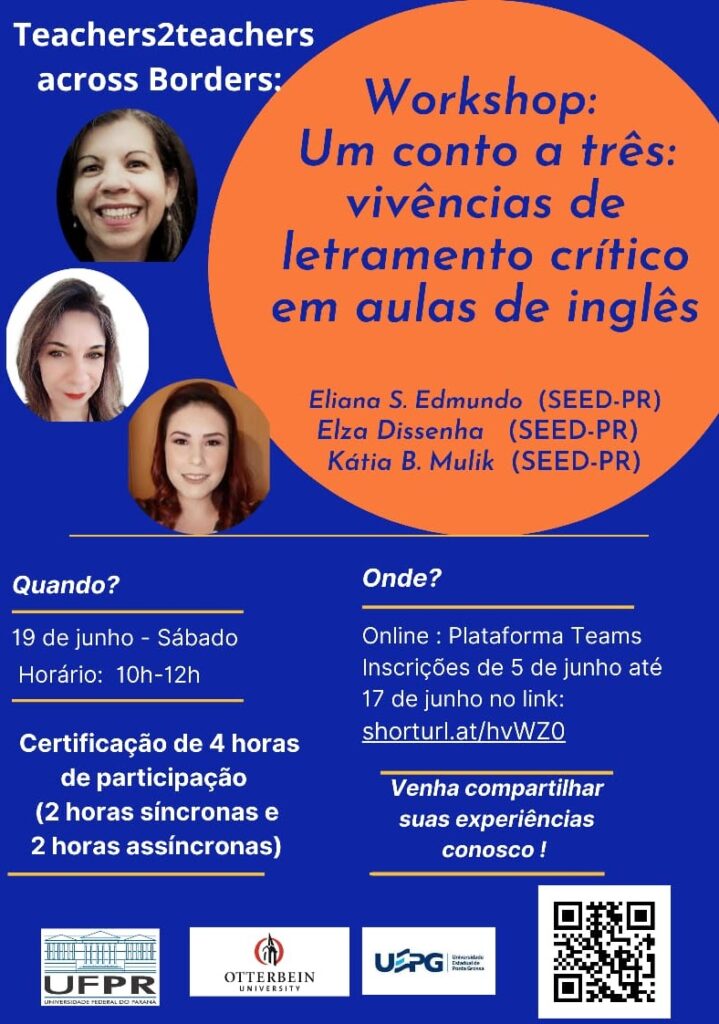
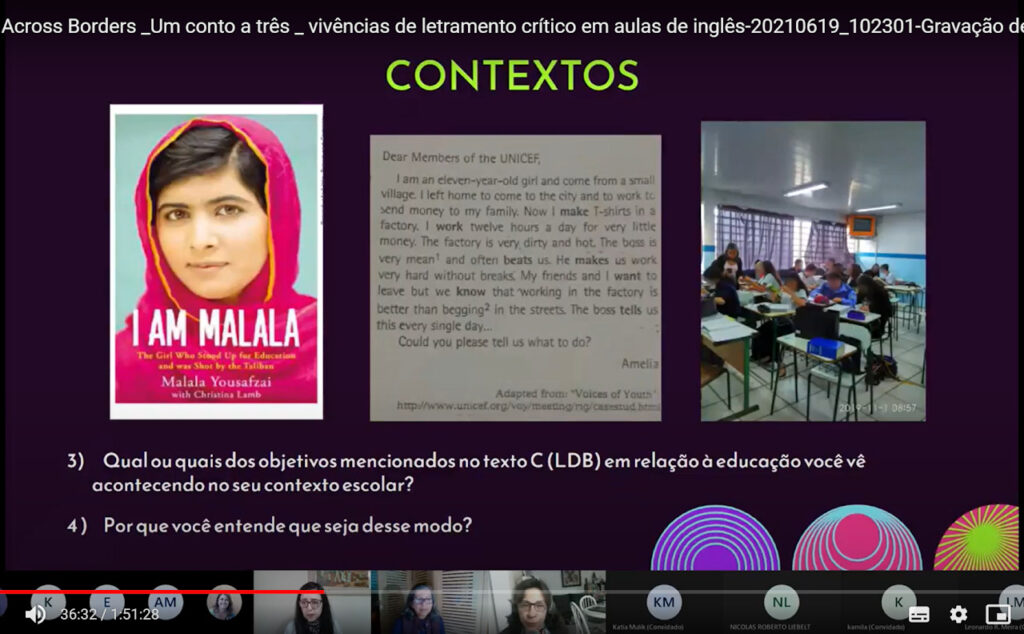
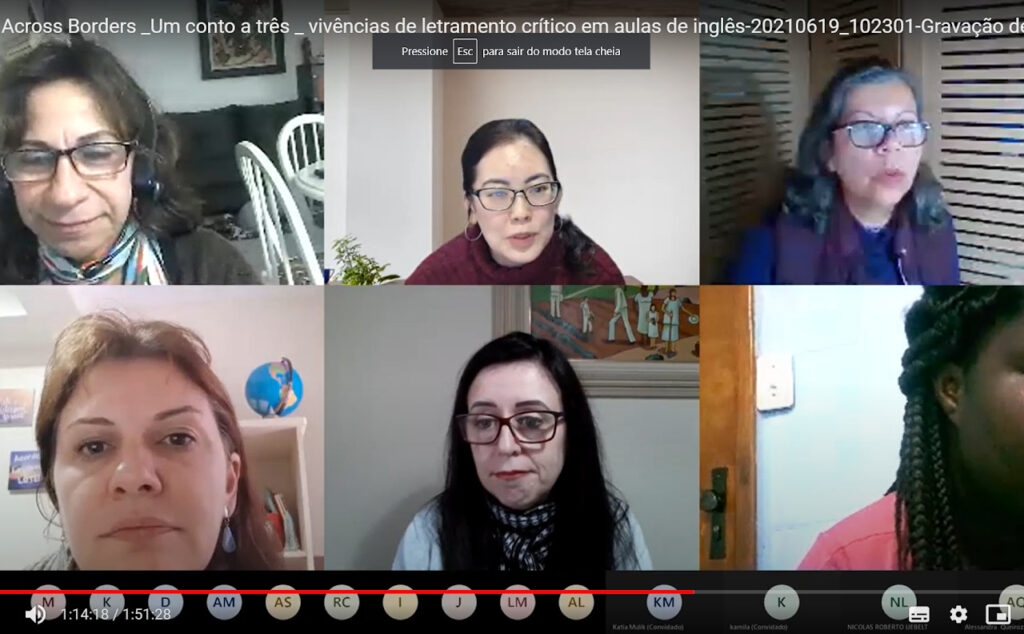
Workshop
Hybrid Education: international extension for basic school teachers
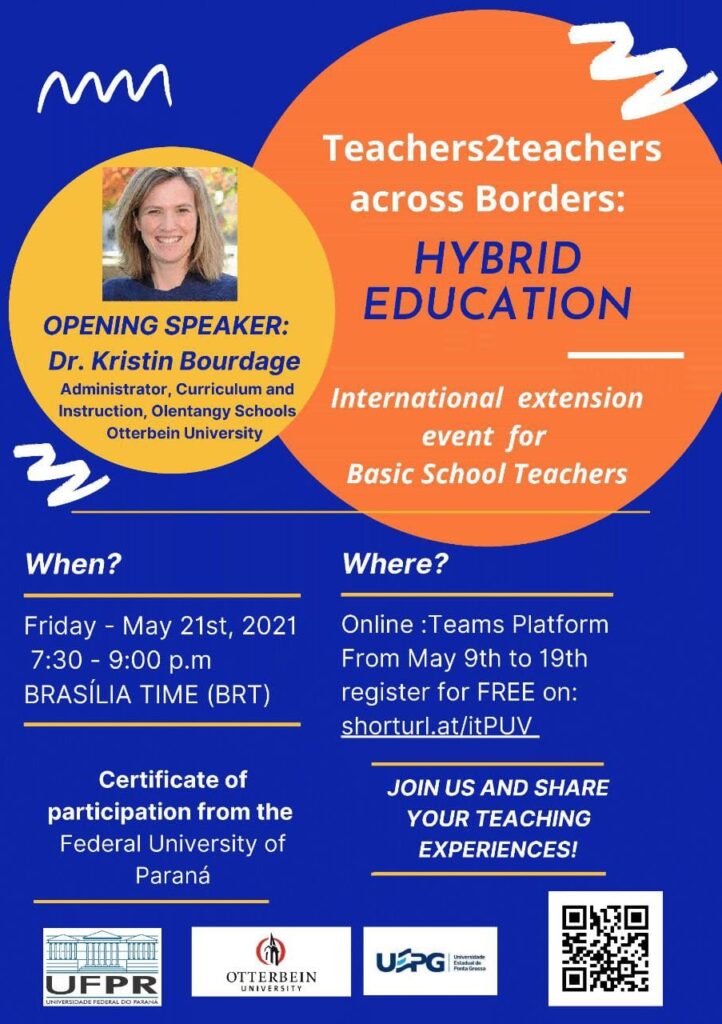
The event Teachers2teachers: hybrid education, taught by Prof. Dr. Kristin Bourdage, from the University of Otterbein and Profs. Drs. Angela Walesko and Denise Hibarno, from UFPR, was held on May 21st 2021 and was designed as an international virtual space for teacher training through intercultural dialogue among Brazilian public primary education teachers and teachers from other countries. Moreover, it also sought to provide an opportunity for critical reflective discussion about educational experiences related to hybrid education, especially those experienced during the Covid-19 pandemic in their local cultural contexts.
